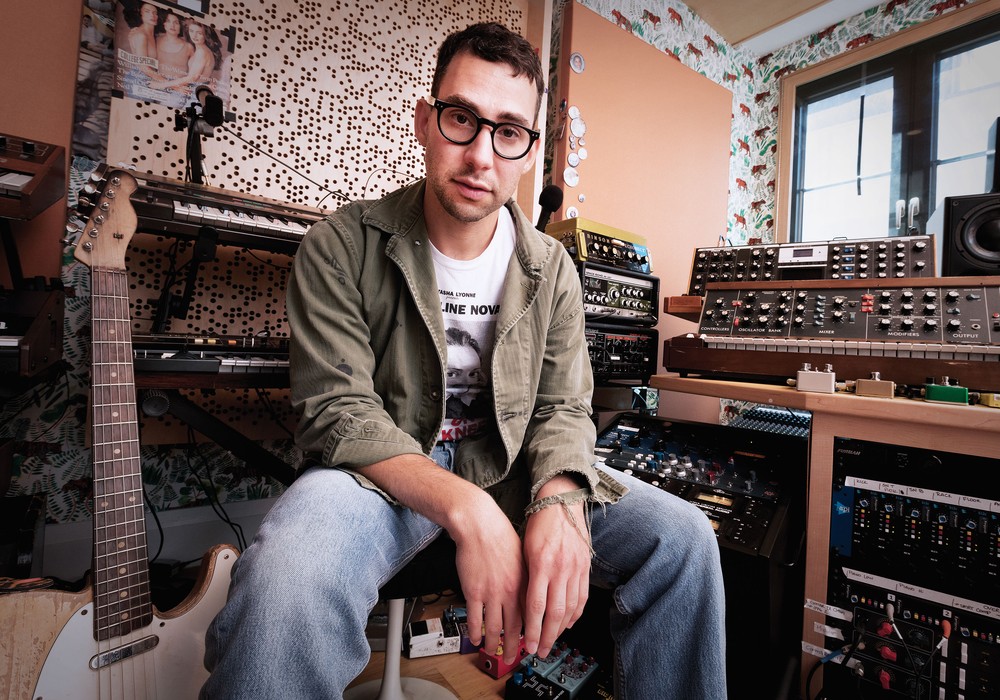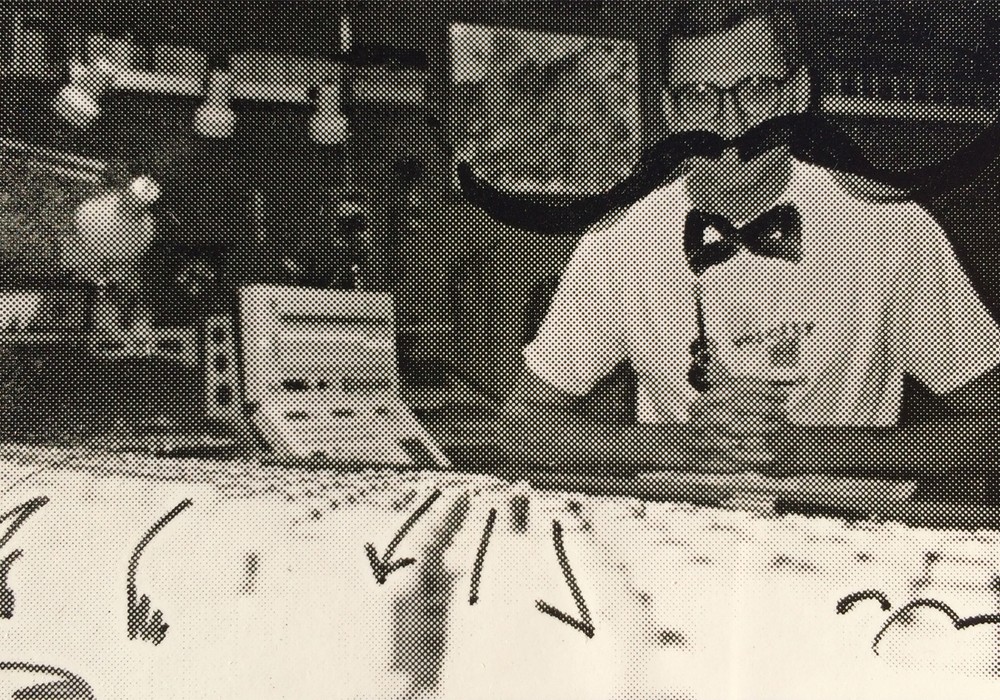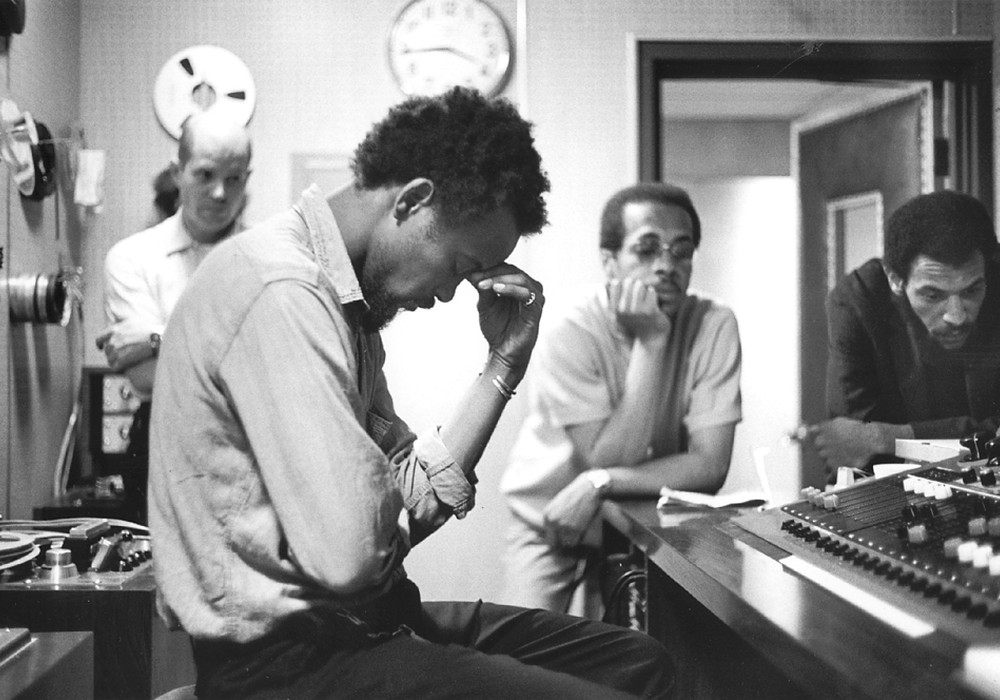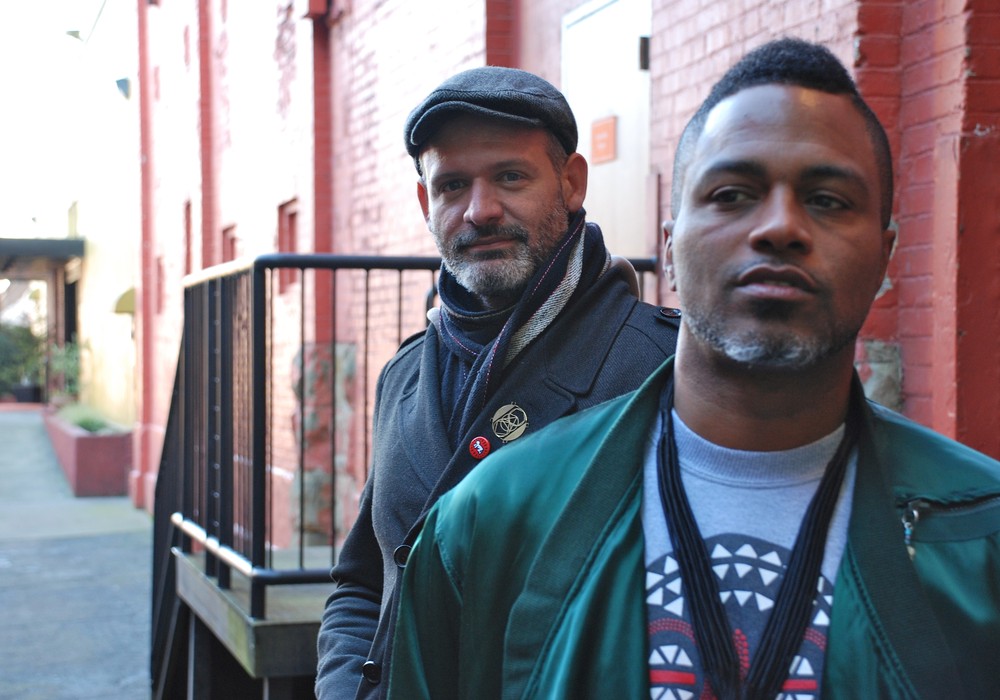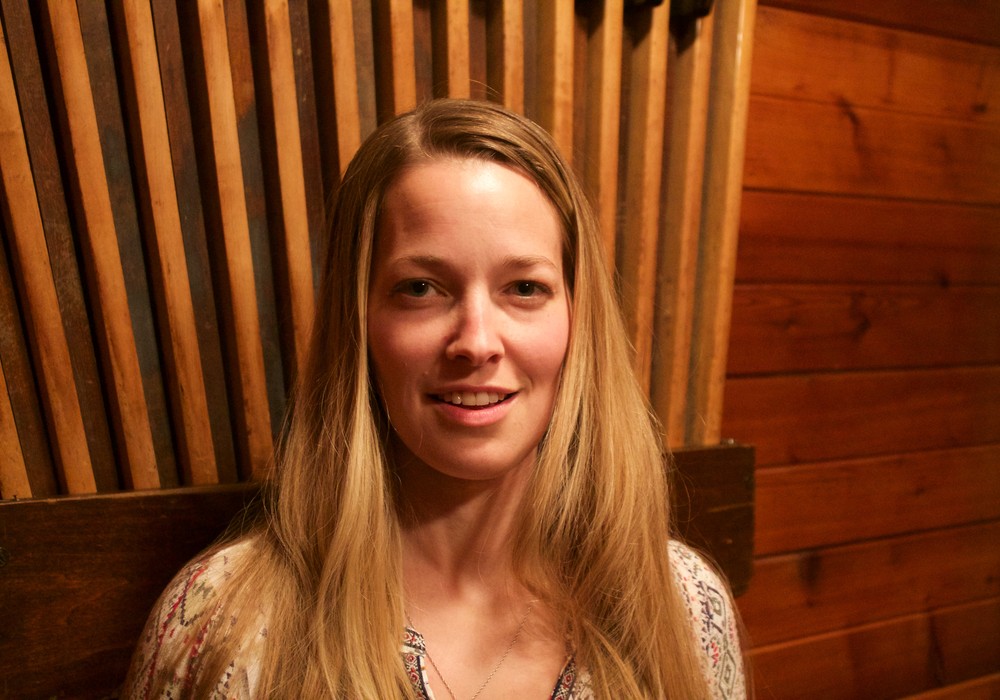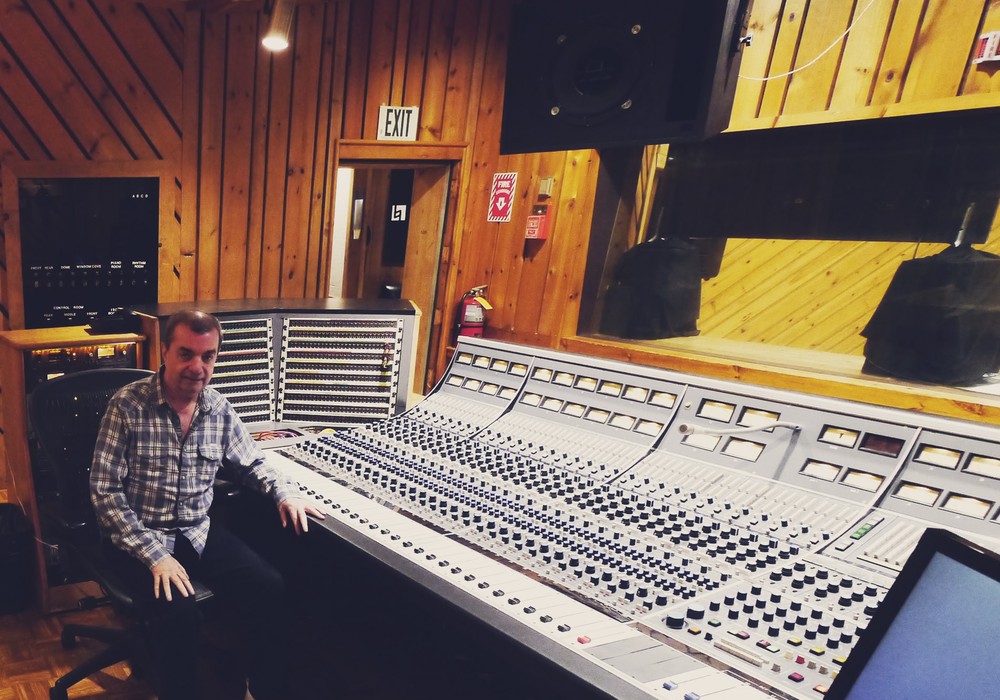It’s a snowy March morning, and I’m enroute to Corpus Studios in Queens to hang with Arthur Rizk. Arthur’s driven up from Philadelphia to chat before he works live sound at the Bowery Ballroom. He was up late mixing, but seems genuinely happy to catch up with the Corpus studio family, who he’s been working with on the upcoming Show Me The Body album. With a production style rooted in classic hard rock techniques and deft use of textural sound design, Arthur has quietly become the go-to producer for left of center heavy music in the 2020s. From his home base in Philly to studios around the globe, he’s welded his parallel pedal mayhem for the likes of Ghostemane, Kreator, Power Trip, and Cavalera Conspiracy. He’s also an emerging king of traditional heavy metal with his own bands Eternal Champion and Sumerlands. We spoke under the glow of Corpus’ lovely Berlant tube preamps about bringing calm to chaos, while also working hard to keep the party going.
Feature Photo Jaclyn Wollard
How did growing up Lebanese in Pennsylvania inform your musical journey?
My parents encoded me with the music and legends of Lebanese singers Fairuz and Farid al-Atrash, and both had a deep sense of melancholy. al-Atrash’s younger and more famous sister Asmahan [Amal al-Atrash] was killed under dubious circumstances, and that really affected me as a kid. Fairuz’s career was held hostage by her husband and his brother, aka the Rahbani brothers [Assi and Mansour], and that despair came through in her music. I would also space out in the pews at church and take in the medieval and Dorian modes of Catholic hymns. When you put that on paper, it’s basically heavy metal. My work ethic comes from my parents. They took a huge gamble to open a Lebanese deli in Easton, PA, at a time when ethnic food was far from popular in our area. They worked their asses off for me and I always echo that mentality, even if at my core I just want to have fun.
Did you go to school for recording?
I had so many bad experiences recording in bands that I took classes at community college to learn enough to avoid going back to studios. I later attended the audio program at Temple University, but it was difficult to absorb that hands-off knowledge without going through the wringer at a studio. At that time, I was more focused on being creative than learning anything technical. Now, I go back and read those textbooks and try to up the ante a little bit each day.
How did recording the self-titled War Hungry album with Will Yip come about?
War Hungry were friends of mine from college, and I joined them when they needed a guitar player. Will was a semester ahead of me and was recording Title Fight at Studio 4 [owned by the Butcher Brothers, Phil and Joe Nicolo]. They told us that Will had been recording hardcore bands there on a Neve 8048 [console] for cheap. So, when Title Fight came to record with Will in Studio A, I would be in Studio B making sound design for our record.
What did you learn from working with Will?
I would always ask him, “Why are we doing this?” Or, “Can we try this?” and he would take the time to explain everything. He was open to mentoring and taking my calls, which can be rare in this industry. I was always pushing him to do crazy stuff on our records, and that’s how he knew I could be a great producer. He also taught me that volunteering your time to other engineers in the studio is the quickest way to rise up. Since then, he’s mixed a number of projects that I tracked, and we worked on Code Orange’s Forever together.
How did you begin acquiring your first production credits?
I started to travel to people’s rehearsal places with a $100 Carvin mixing board and worked tirelessly with any bands who were playing shows. My friends and I then moved into a rowhouse near downtown Philly that we called the Mansion, and I had a bedroom studio on the fourth floor named Solomon’s Gate. It was a four-story building, with tall ceilings, eight bedrooms, a hot tub, and disco balls. It may have been a former coke mansion. [laughs]
Blake Ibanez from Power Trip seemed quite taken aback by his first visit there.
Recording their first album, Manifest Decimation, at the Mansion was so fun, because I was using such cheap limited equipment and we spent most of our time pushing each other to the max. We taped microphones to the ceiling because I wanted the snare to sound like the first Metal Church album [Metal Church]. I was chaining together ancient Sunn mixers, ART reverbs, and cheap, live sound dbx compressors up across four floors, and it was pure chaos. But somehow, when all the faders were up, it sounded exactly how I imagined it. Over the next year, we...
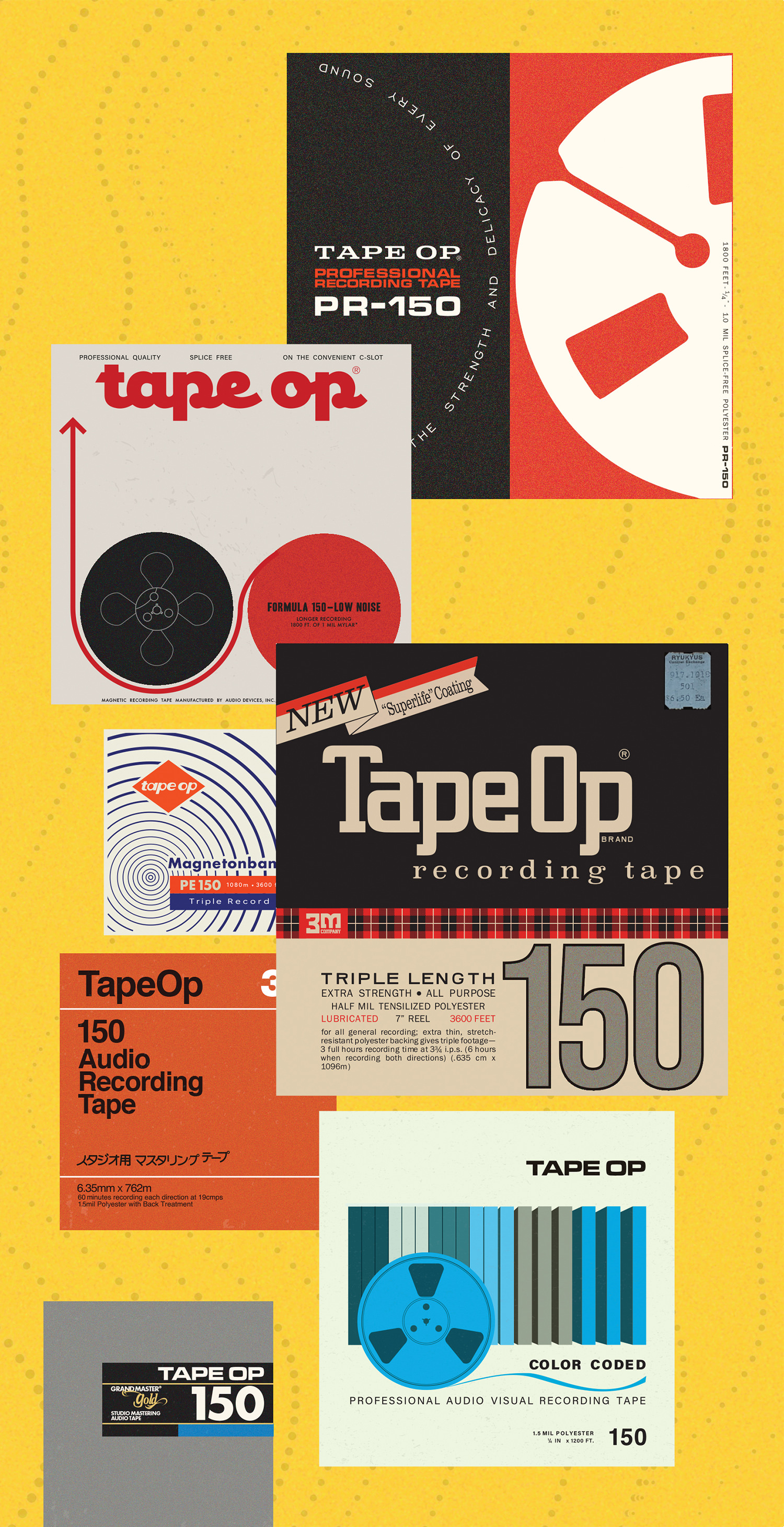



_display_horizontal.jpg)
